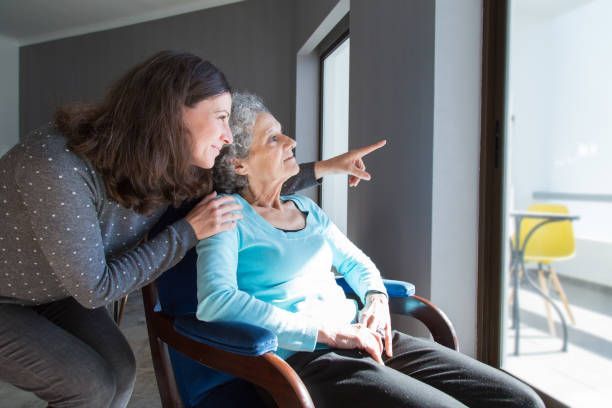4 Practical Strategies for Navigating Healthcare Literacy
4 Practical Strategies for Navigating Healthcare Literacy
At 7 Day Home Care, we recognize the immense value of asking questions and encouraging a culture of inquisitiveness, especially when it comes to healthcare literacy. Understanding the nuances of home care, insurance benefits, and medical conditions is crucial for making informed decisions about your or your loved one's care. By asking questions, clients and their families can clarify doubts, understand the scope of services, navigate the complexities of long-term care insurance, and ensure they are fully aware of all available options. This proactive approach not only empowers individuals but also fosters a collaborative relationship between clients, caregivers, and insurance providers. Our team is always ready to provide detailed answers and support, ensuring that every client feels confident and well-informed about their healthcare choices. 7 Day Home Care is licensed by the New York State Department of Health to provide home care services in
Manhattan, Queens, Brooklyn, Nassau County, and Suffolk County, New York.

Healthcare Literacy Enhances Over-all Well-Being for Elderly
Healthcare literacy, the ability to understand and effectively use health-related information, plays a crucial role in promoting individuals' well-being and enabling them to make informed decisions about their health. At 7 Day Home Care, we recognize the significance of healthcare literacy in empowering our clients and their families to navigate the complexities of healthcare. In this article, we will review the challenges and risks associated with limited healthcare literacy and provide practical strategies to enhance healthcare understanding and advocacy.
Challenges of Healthcare Literacy
Complex Medical Terminology: Medical jargon and complex terminology can be intimidating and challenging for individuals with limited healthcare literacy. Understanding medical documents, prescriptions, and treatment options may become overwhelming, leading to confusion and misinformation.
Limited Access to Health Information: Limited access to reliable health information can hinder individuals from staying informed about their health conditions, preventive measures, and available resources. Inaccurate or misleading information from unreliable sources can further exacerbate healthcare challenges. According to the National Assessment of Adult Literacy, nearly nine out of ten adults in the United States have difficulty using everyday health information.
Risks of Limited Healthcare Literacy
Poor Health Outcomes: Individuals with low healthcare literacy may struggle to manage chronic conditions, adhere to treatment plans, and engage in preventive health practices. This can lead to a higher risk of medical complications and poorer health outcomes.
Increased Healthcare Costs: Limited healthcare literacy can result in unnecessary emergency room visits, hospital readmissions, and avoidable medical procedures. This drives up healthcare costs and puts financial strain on individuals and the healthcare system. The Agency for Healthcare Research and Quality (AHRQ) estimates that low healthcare literacy is associated with healthcare costs of $106 to $238 billion annually in the United States.
Practical Strategies to Enhance Healthcare Literacy
- Clear and Simplified Communication: Healthcare providers should adopt plain language and avoid jargon when communicating with patients and their families. Providing written materials in clear and easy-to-understand language can improve comprehension and empower patients to take an active role in their healthcare. The Centers for Disease Control and Prevention (CDC) advocates for the use of plain language to enhance health communication and promote healthcare literacy.
- Utilize Visual Aids and Technology: Visual aids, such as charts, diagrams, and videos, can enhance understanding and make complex medical concepts more accessible. Utilizing healthcare apps and online resources can also empower individuals to access reliable health information conveniently. A study published in the Journal of Medical Internet Research found that interactive digital tools and mobile apps positively impact healthcare literacy and engagement.
- Encourage Questions and Active Participation: Encouraging patients to ask questions and actively participate in their healthcare decision-making can foster a sense of empowerment and improve healthcare outcomes. Healthcare providers should create a supportive environment that welcomes patient inquiries. The American Academy of Family Physicians (AAFP) emphasizes the importance of patient engagement and shared decision-making to improve healthcare literacy.
- Enhance Family and Caregiver Involvement: Family members and caregivers play a vital role in advocating for their loved ones' health. By actively involving family members in healthcare discussions and decisions, patients with limited healthcare literacy can receive additional support and understanding. The Family Caregiver Alliance underscores the significance of family involvement in healthcare management to improve patient outcomes.
Healthcare literacy is a fundamental aspect of achieving optimal health outcomes and ensuring patient empowerment. By addressing the challenges and risks associated with limited healthcare literacy, healthcare providers can implement practical strategies to enhance patient understanding and engagement. At 7 Day Home Care, we are committed to supporting our clients and their families in navigating healthcare complexities, promoting healthcare literacy, and empowering informed decision-making.
If you or your loved one requires in-home care services in Manhattan, Brooklyn, Queens, Nassau County, or Suffolk County, New York, consider 7 Day Home Care as your trusted partner. Our compassionate caregivers and comprehensive care services are dedicated to improving the lives of our clients while promoting healthcare literacy and advocacy. To learn more about our in-home care services, visit https://www.7dayhomecare.com/request-a-free-consultation-form or call 516-408-0034. We are here to support your unique needs and provide high-quality care with a focus on patient well-being and empowerment.
Brian Callahan
7 Day Home Care










